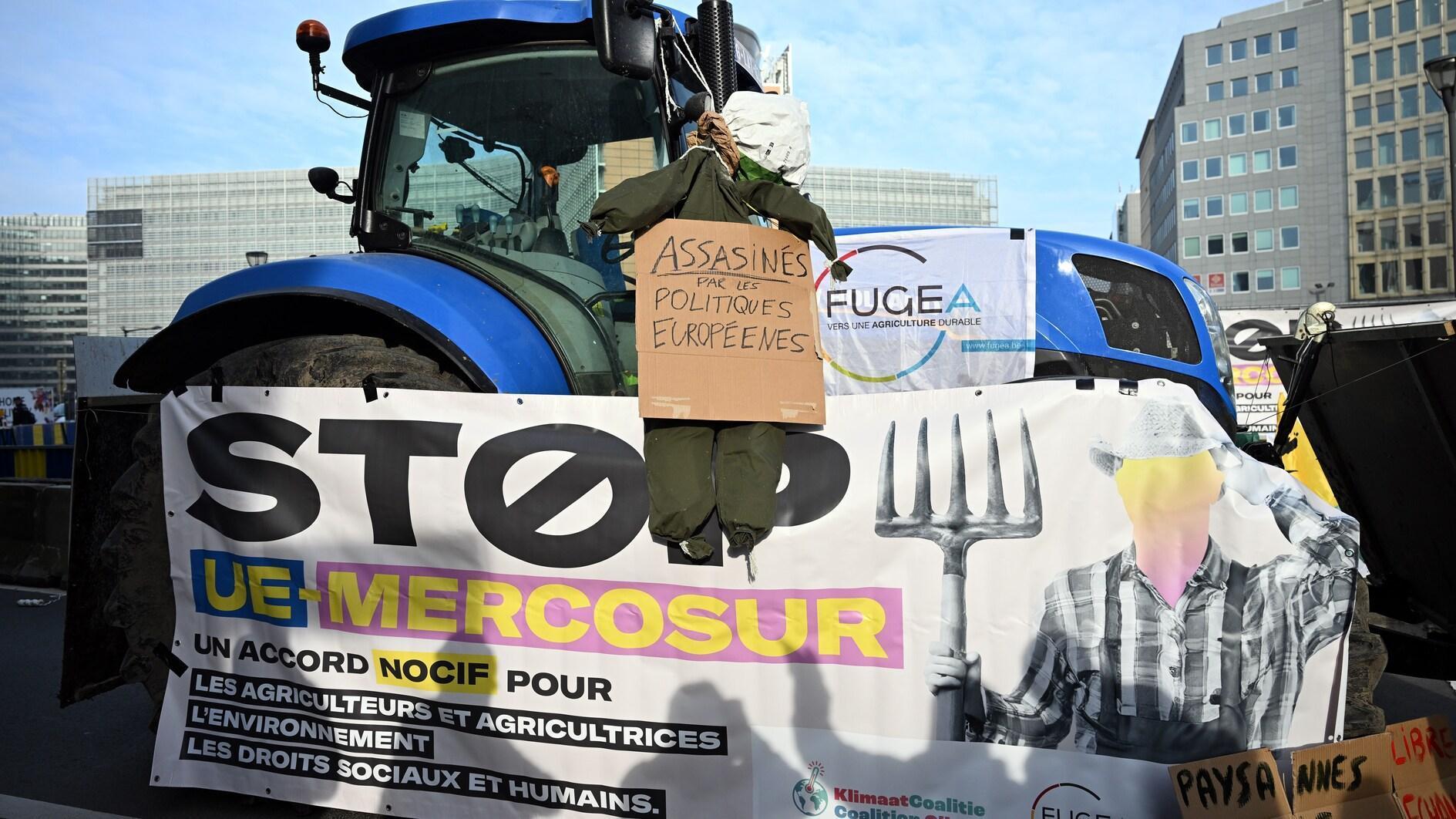
A controversial trade deal between the EU and South America's Mercosur bloc is back in the spotlight with renewed hopes of a deal by year end, despite fierce opposition from key country France.
The blockbuster trade pact between the 27-country European Union and Mercosur countries, Brazil, Argentina, Paraguay and Uruguay, has been 25 years in the making and would create the world's biggest free trade zone.
The contours of a deal were agreed in 2019 but some EU states blocked its ratification over environmental concerns.
Chief opponent France is still trying to stop it in its tracks, with angry farmers staging fresh protests on Nov. 13 in both Paris and Brussels against an accord they fear will flood the bloc with cheaper agricultural goods.
French Prime Minister Michel Barnier reiterated that stance during talks with European Commission head Ursula von der Leyen in the Belgian capital.
"I informed the president that as it stands this deal is unacceptable for France, and France will not accept it," Barnier told reporters afterwards, adding with a hint of warning: "I would not recommend overriding the position of a country like France."
But officials point to a real push inside the commission, in charge of EU trade policy, to get a Mercosur deal over the line with or without France.
The agreement's biggest European supporters, including Spain and Germany, believe it can be struck before year end.
Spanish Prime Minister Pedro Sanchez pointed last month to two key meetings as a chance to move things forward: the G20 summit in Brazil on Nov. 18-19, and a Mercosur gathering in Montevideo in December.
European officials and diplomats dismissed the likelihood of a deal at the G20 talks.
But Sanchez has said an agreement was "very close", while German leader Olaf Scholz is pushing for negotiations to "be finalised quickly."
For many, the speculation will feel like deja vu.
In December last year, both sides wanted to put the final seal on the deal but it fell at the last hurdle over the EU's environmental demands.
Some member states, including France, were especially concerned about deforestation in the Amazon, and wanted commitments to ensure its protection.
This time around, France is seeking to form a blocking minority, requiring four member states under EU rules, although its ability to do so is unclear.
The country's Agriculture Minister Annie Genevard said Paris was "actively working" to persuade fellow EU countries to use their veto against it.
But while some countries including Austria have in the past criticised the pact, others such as Ireland and the Netherlands want to judge the latest deal before taking any formal position.
The pact has provoked farmers' ire because they fear any agreement would open European markets to cheaper meat and produce that are not forced to adhere to strict rules on pesticides, hormones, land use and environmental measures.